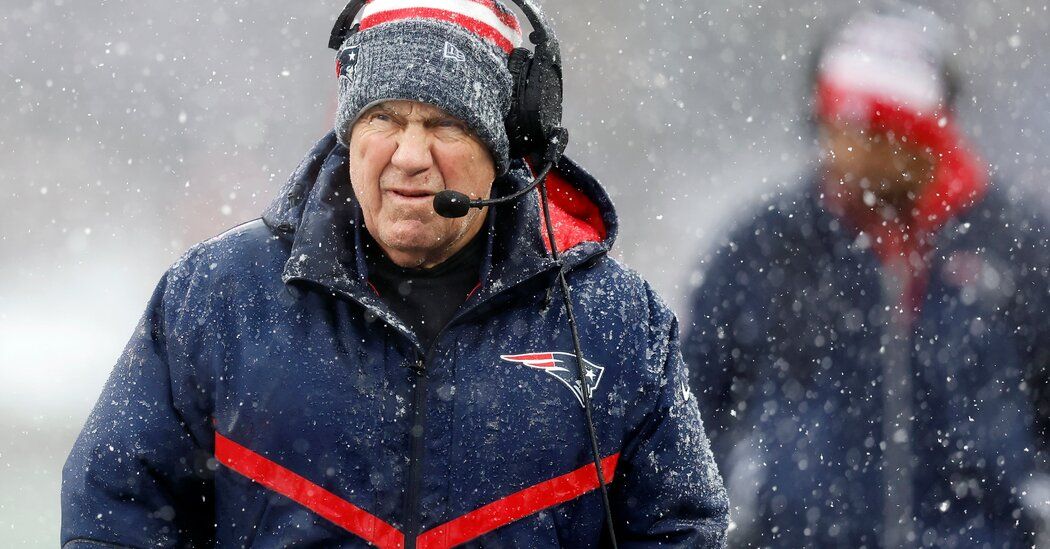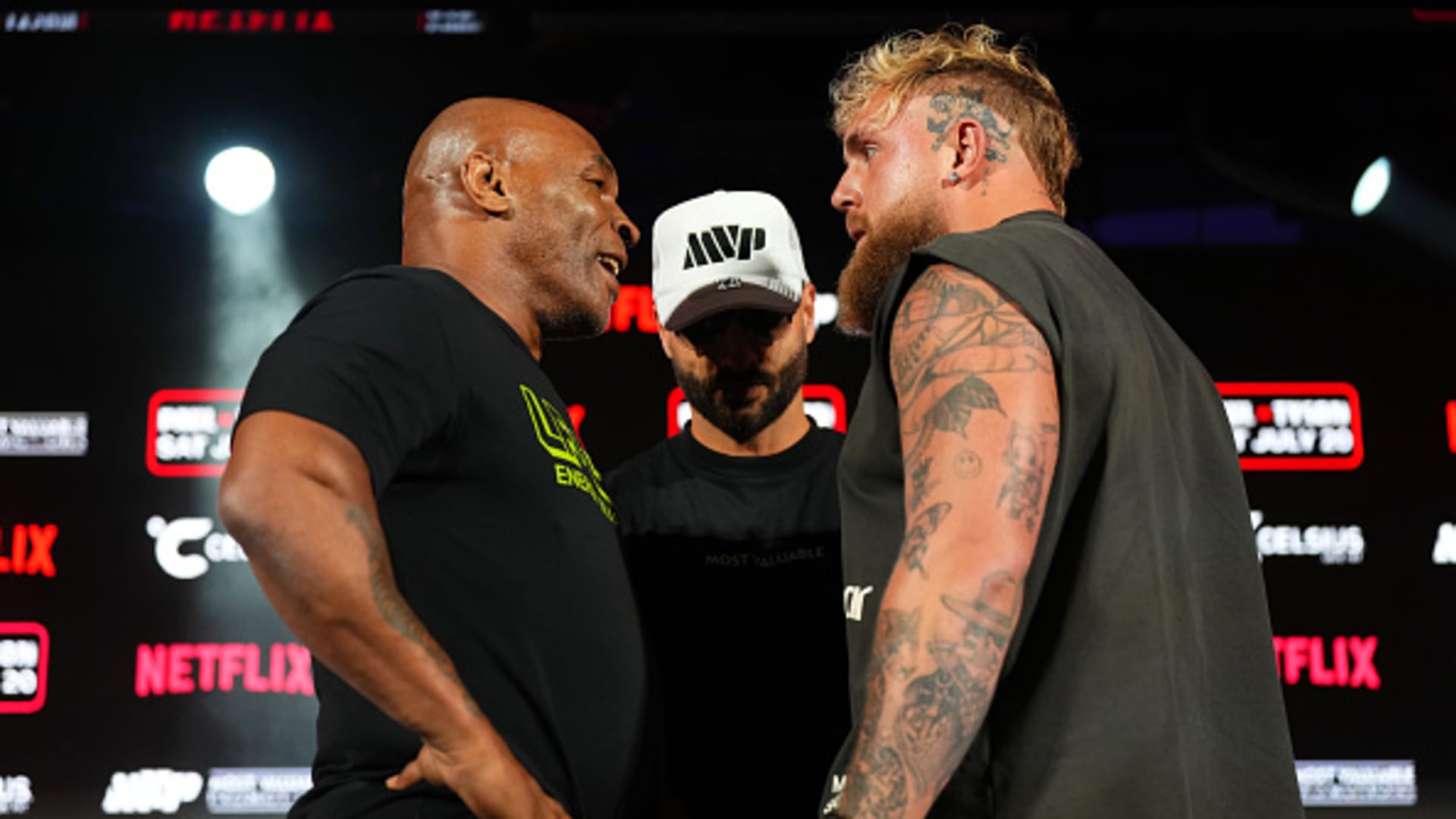It's hard to imagine now, after six Super Bowl titles and two decades at the top of the NFL, but for most of their existence the New England Patriots were horrible.
The team did not have a permanent home for its first decade and then left Boston in 1971 to move to windy Schaefer Stadium in Foxborough. The owners struggled and went into debt. Brief moments of victory, including two Super Bowl appearances last century, were punctuated by years of defeat.
The franchise's fortunes began to change in 1994 when Robert K. Kraft, a local businessman and longtime Patriots season ticket holder, purchased the team. His first few years in charge were difficult, but in 2000 he hired Bill Belichick, a coach who was also the de facto general manager and drafted quarterback Tom Brady in the sixth round.
The triumvirate created one of the most successful dynasties in sports and the third most valuable franchise, worth an estimated $7 billion. They joined the exclusive company of teams such as the New York Yankees and the Dallas Cowboys, internationally recognized brands synonymous with American success. While it would once have been rare to glimpse the team's Pat the Patriot logo south of Hartford, Brady's jerseys became a common sight in countries around the world. Kraft, in turn, became one of the most influential owners in the NFL.
“They were a laughing stock,” said Upton Bell, general manager of the struggling Patriots teams of the 1970s and a longtime Boston radio host. “As much as I like to think I can see the future, I never would have imagined such success.”
Between 2001 and 2019, the Patriots won a staggering 76 percent of their regular-season games and reached nine Super Bowls, winning six. The surprising run had three constants: a committed owner in Kraft, a generational quarterback in Brady and a master tactician in the taciturn Belichick.
In many ways, the era ended after the 2019 season, when Brady left for the Tampa Bay Buccaneers. The Patriots are 29-38 in the regular season over the four seasons since Brady's departure, a winning percentage of .433.
But the dynasty truly came to an end Thursday when the team parted ways with Belichick, 71, the second-winningest coach in NFL history. The Patriots will now have to prove they can reach the same heights on and off the field without Brady and Belichick.
“I will always be a patriot,” Belichick said during a brief news conference, his voice breaking slightly. “I really want to get back here, but right now we're going to move forward.”
Although Belichick's tenure in New England ended unceremoniously, he will be remembered most for the victories he, Brady and Kraft racked up and the way they elevated the Patriots' brand to the highest levels of the sport.
It was particularly notable that they accomplished this in the modern NFL, where teams operate under a salary cap that sets a limit on player payroll annually, with harsh penalties for teams that exceed it. That restriction forces them to constantly rebuild their squads to compete.
“In my opinion, what Bill accomplished with us will never be replicated,” Kraft said. “And the fact that it was done in the era of the salary cap and free agency makes it even more extraordinary.”
None of the dynasty's leaders acted alone. Kraft recognized that he needed to step aside when it came to managing the staff. Brady was a team leader on the field and was willing to restructure his contract so that there would be enough money left to sign other players.
Yet Belichick mastered salary cap economics like no one else, clinically dispensing with expensive, aging fan favorites and stalwarts in his endless pursuit of what he called “value.”
Scott Pioli, the Patriots' top player personnel executive during the team's first three Super Bowl titles, said: “We made some decisions and did some things we didn't want to do, but the decisions were made because we had an obligation to do them. “. the other 52 players” and the rest of the organization.
“We were going to make what we thought were the best decisions to have the most success,” he said.
Every team has operated under the same constraints since NFL owners 30 years ago introduced free agency and team salary caps, ending years of labor disputes but also forcing teams to rethink how they built their templates. Al Davis, the maverick owner of the Los Angeles Raiders, predicted at the time that many of his brothers, accustomed to having the most influence in contract negotiations, would find this new world disorienting.
“It will be like the Russians learn the free market,” Davis said of the owners and the new system.
The salary cap broke up dynasties in big-market cities like Dallas, San Francisco and Washington. Belichick and his team, however, seemed to have a knack for finding players undervalued by others and the audacity to move away from proven stars in a sport with very high injury rates that can bring down even the most solidly built teams.
Belichick kept the Patriots together by using a utilitarian approach to finding talented players while keeping salaries down. Kraft gave him the freedom to do so, having learned from his experience with former Patriots coach Bill Parcells, who mentored Belichick. Parcells complained about Kraft's meddling upon leaving him in 1996, saying, “If they want you to cook dinner, they should at least let you buy some groceries.”
Belichick's value-based approach began his first year in Foxborough when he selected the little-known Brady in the sixth round of the 2000 draft, even though Kraft had a crush on quarterback Drew Bledsoe and helped negotiate a contract extension. of 10 years and $103 million with him at the beginning. 2001.
After Bledsoe was injured early that season, Belichick quickly pivoted to Brady, who led the Patriots to their first Super Bowl victory in 2002. Bledsoe and his mammoth contract were gone the following year. In 2003, Belichick cut defensive back Lawyer Milloy, the team's captain, days before the season opener after he refused to take a pay cut. The message was very clear: anyone was replaceable.
The NFL salary cap was introduced during Belichick's first stint as head coach, with the Cleveland Browns, but its mastery took time. After Belichick arrived in New England, he asked Pioli and Ernie Adams, the team's director of football research, to create a new rating scale for player scouting that incorporated the relative value of each position and took versatility into account. of a player. They also began tying incentives in players' contracts not only to individual statistics but also to team success.
The Patriots' first championship roster was built with the help of good drafting and the signings of numerous underrated free agents. In 2001, Pioli remembers committing a relatively insignificant amount, about $2.5 million, in bonuses to sign nearly two dozen veteran players.
“We signed all these guys that we knew were good players but that no one else wanted,” he said. “If you go back to the articles, people were openly laughing at us in the media and saying we were in this bargain basement, discount shopping.”
After a brief hiatus in 2008, when Brady was injured and the Patriots missed the playoffs, Belichick's teams renewed their dominance and won three more Super Bowls. Belichick continued to leave players behind before his skills began to decline or they were owed a big payday. He surprised the league by trading defensive lineman Richard Seymour in 2009 and offensive guard Logan Mankins in 2013. He also recognized the potential of undersized, under-heralded players like Wes Welker and Julian Edelman, who became star receivers playing primarily in the least rated slot. position.
“I have never in my entire life been around someone in the football profession who had that unique and rare combination of mastering both knowledge and foresight,” said former Notre Dame and Kansas head coach Charlie Weis, who served as Belichick's offensive coordinator from 2000-4.
The idea manifested itself in how he trained his team each week, crafting customized game plans that took advantage of an opponent's specific weaknesses. The plan was to build his team not only with the current season in mind, but also with an eye toward the future, understanding that this was what the salary cap era required.
“How many teams are one-year wonders?” Weiss said. “They do everything they can for a year and soon after that they fall off the cliff very quickly. Well, that's not what he did. He put together a team that could stand the test of time.”
As Belichick's teams have declined without Brady, critics have downplayed the coach's role in the team's success. But wins don't lie, and Belichick delivered them, turning the once-moribund Patriots into a valuable franchise to be reckoned with, on and off the field.









